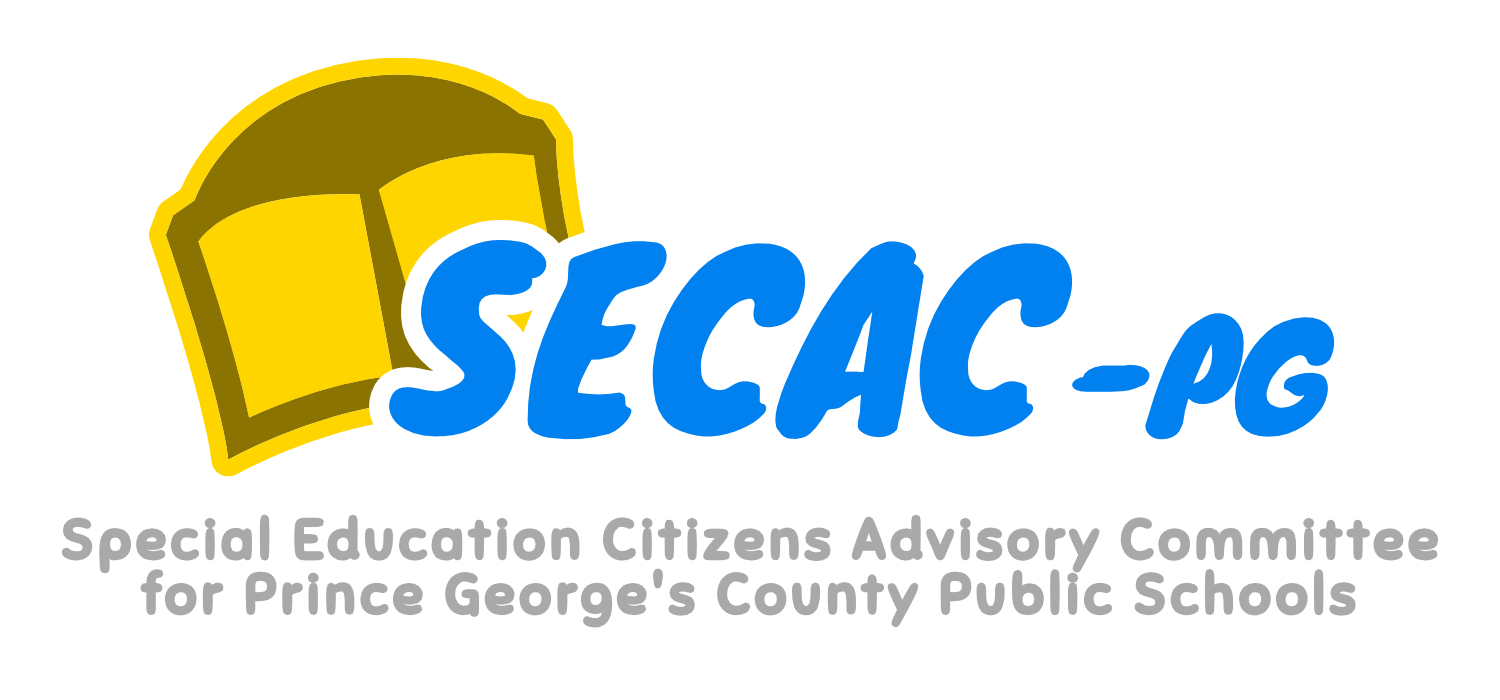General Information & Parent Advocacy
Special Education Family Toolkit (2024)
A comprehensive guide from PGCPS for families of students receiving special education services. Includes an overview of rights, services, key contacts, and tips for navigating the school system.
Maryland Parent Information Series
A collection of short, easy-to-read guides from MSDE covering IEPs, evaluations, dispute resolution, and other special education topics.
Get to Know My Child Toolkit
Looking for a simple way to help teachers and caregivers understand your child? This customizable toolkit helps families share key details about a child’s strengths, needs, and routines to support smoother communication and stronger relationships.
Parental Rights: Maryland Procedural Safeguards Notice (2024)
Full explanation of your rights under Maryland special education law, including IFSP and IEP services.
Maryland Statewide IEP Process Guide
A step-by-step guide to the Maryland IEP process from the Maryland State Department of Education.
Learn the Law: IDEA (2024)
This newly updated guide (2024) provides a plain-language overview of the Individuals with Disabilities Education Act (IDEA). It covers your child’s rights, how special education services should be delivered, and what to do when things go wrong. Designed for families, educators, and advocates, it breaks down key protections like the IEP process, evaluations, timelines, and dispute resolution.
Note: This replaces the older 2004, 2006, and 2014 IDEA Parent Guides, offering the most up-to-date guidance on IDEA implementation.
Special Education Guide
Glossary, best practices, and procedural guides to help parents navigate special education from evaluation through services.
Facilitated IEP Meetings
Introduction to the facilitated IEP process, designed to help teams reach agreements in a collaborative way.
Parent’s Place of Maryland Training Sessions
View our collection of Parent’s Place of Maryland (PPMD) training presentations and handouts, developed in partnership with MSDE to guide families through the special education process, advocacy strategies, and IEP planning.
Wrightslaw
Comprehensive, plain-language resource for special education law, rights, and advocacy strategies.
Navigating PGCPS to Resolve Concerns
A practical guide for families on how to resolve special education concerns within Prince George’s County Public Schools.
Programs & Services in PGCPS
PGCPS Special Education Department Home
Main landing page for PGCPS Special Education services, announcements, and updates.
PGCPS Ombudsman – How to Address Questions & Concerns
Process for resolving school-related issues, including who to contact at each step.
Synergy ParentVUE (formerly SchoolMAX)
Secure login portal for parents to access student grades, attendance, and school communications; also used to register new students and manage contact information.
Student Rights & Responsibilities Handbook (2025)
The PGCPS code of conduct outlining expectations, rights, and responsibilities for all members of the school community.
Transportation – Frequently Asked Questions (2025)
Information on bus eligibility, routing, safety procedures, and how to request transportation changes within PGCPS.
Specialty Programs & Career Academies
Overview of themed educational opportunities like Career & Technical Education, IB, Arts, and Immersion programs, including application details and program descriptions.
Understanding Programs & Services in PGCPS (2014)
An overview of the range of special education services and supports available across the school system.
Home & Hospital Teaching in PGCPS (2014)
Explains services for students who cannot attend school due to physical or emotional conditions.
PGCPS Partners for Success Parent Center (2014)
Presentation from Beth Diaite (Partners for Success Parent Center) focused on school-family collaboration.
Assistive Technology
The Role of Physical Therapy with Assistive Technology (2011)
A presentation by physical therapist Sue Cecere exploring how physical therapy services intersect with assistive technology tools in supporting student access, mobility, and participation in school settings.
Powering Up With Technology for Parents (2010)
A presentation by Dr. Sarah Wayland and Dr. Katharina Boser offering guidance for families on using technology to support children with disabilities. Covers early tech tools and strategies for home and school success.
Assistive Technology (2009)
A presentation from the PGCPS Office of Assistive Technology introducing assistive technology supports available to students with disabilities. Includes examples of tools, referral process, and how tech is integrated into the IEP process.
Archived Presentations & Speaker Sessions
Parent Survey on Learning Disabilities in PGCPS (Fall, 2013)
A report from SECAC summarizing parent feedback on how children with learning disabilities were supported in the school system.
Emotions & Learning: Understanding Social-Emotional Needs in the Classroom (2013)
This handout from Dr. Katharina Boser’s 2013 presentation explores the intersection of learning disabilities and emotional regulation. It includes strategies for building motivation, promoting respect, and creating brain-compatible learning environments for students with social-emotional challenges.
Summer Camp Guide (2012)
A resource handout originally shared at the SECAC Summer Camp Fair, listing inclusive and disability-friendly summer camp options available to families in 2012.
Note: This list is no longer current but may still be helpful for identifying the types of camps and programs historically available.
Caring For Your Challenging Child (Spring 2011)
Dr. Dan Shapiro’s multi-week course helps families better understand children with challenging behaviors by exploring developmental pathways, behavior triggers, and common diagnoses. This course outline and overview provide a snapshot of the skills, concepts, and parent strategies explored throughout the series.
Response to Intervention (2011)
This presentation explains the RTI framework, a multi-tiered approach for identifying and supporting students with learning and behavioral needs. It outlines the process, tier levels, and how schools use RTI data to guide instructional decisions.
Too Many Therapies, Too Little Time – Dr. Dan Shapiro (2010)
A multi-part resource kit from Dr. Shapiro’s 2010 presentation, helping families navigate therapy overload by prioritizing interventions based on observed needs, school feedback, and collaborative planning. Includes worksheets and planning tools.
Community Referenced Instructional (CRI) Programs – Workshop Report (2010)
Summary report from a workshop hosted by SECAC, The Arc, and PGCPS to collect parent and community feedback on CRI programming. The report includes survey results, participant concerns, and recommendations for improving services for students with significant cognitive disabilities.
IDEA Parent Guide (2004)
This guide was originally published by the National Center for Learning Disabilities in 2004. It has since been replaced by the updated 2024 version linked in our current resources section, but remains available here for reference purposes only.
Communicating With Your Child's School Through Letter Writing (2002)
A parent-friendly guide with tips and sample letters to help you clearly request evaluations, address concerns, and collaborate with your child’s school.


